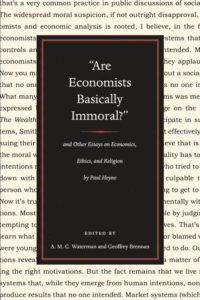Tribalism: What is it Good For?
Are tradition and rigid social norms out of touch? Not according to Israeli author and computer scientist Moshe Koppel, the guest in this episode. On the other hand, warns Koppel, when you don’t like a particular tradition, you shouldn’t try to get rid of it so fast. Good social norms must evolve slowly. This conversation with EconTalk host Russ Roberts centers on Koppel’s notion of “a Hayekian bottom-up evolution of morality versus alternatives.” The two discuss whether there should be a role for tradition in thinking about how to live. Koppel insists that tribal norms can be a good thing; he tells a compelling story about Jewish refugees in a camp in Casablanca. Roberts allows they may play a role on solving collective action problems. So why do so many seem to bristle at them? And shouldn’t we worry about in- versus out-group effects? Parochialism? Insularity? Let’s hear your perspective on these questions. Use the prompts below and share your thoughts in the comments, or to start your own conversation offline. We love to keep the conversation going. 1- Koppel says there are four sorts of norms that are inherently tribal- norms with regard to food, sex, rituals, and transactions). Why do we need these rules like that, and what are they good for? Can you points to any such norms that are not doing what Koppel suggests they ought? Explain. 2- Roberts asks why we privilege reason over tradition, or have a tendency to see tradition as an actively bad thing? How would you answer this question? How does Koppel reply? With regard to having children, Koppel bets that the next generation of people are going to be those who got their genes from people who thought that you should have children. What do you think? 3- Robert points to the “new norm” of wokism to ask, what’s wrong with a fast-changing norm? Isn’t wokism just the next step in the cultural evolution Koppel speaks of? 4- Koppel points to four aspects of evolving norms. What are they? Do you believe each to be as significant as Koppel? Why? How does moral intuitionism work in tandem with codification to create new norms? Can traditionalism ever not be “conservative”? 5- What makes communities more adaptive than states, according to Koppel? To what extent have you found this to be true? (0 COMMENTS)







